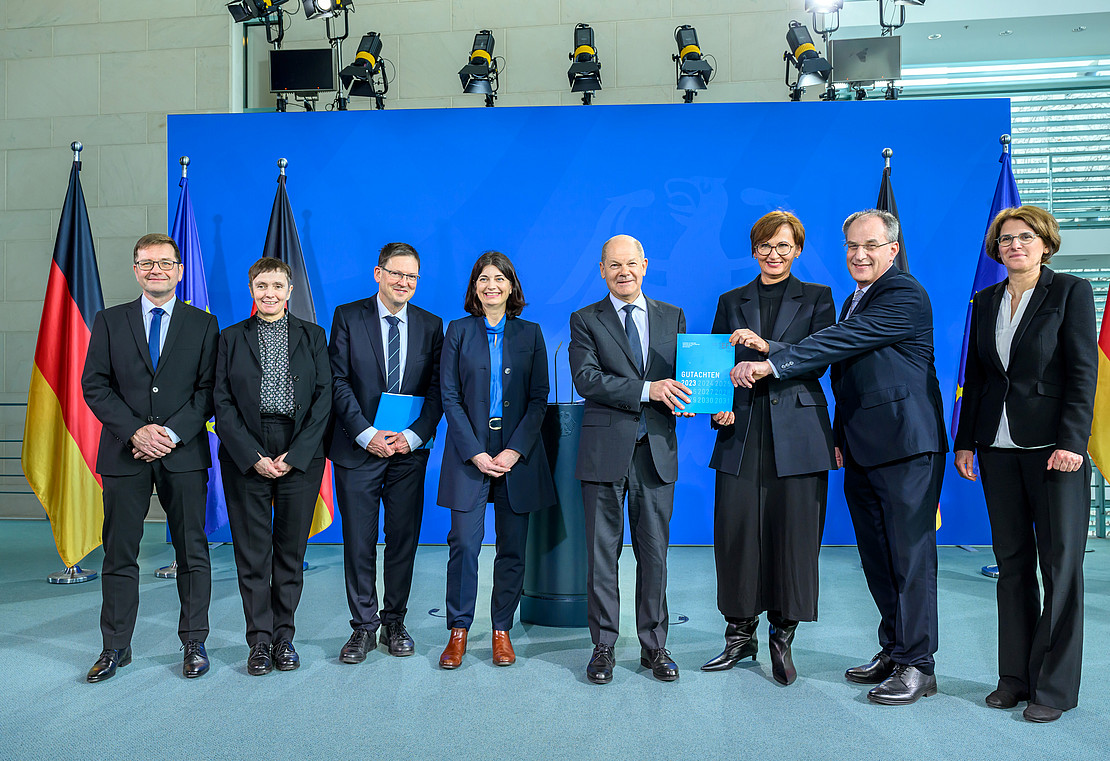This page contains automatically translated content.
Commission: Facilitate employment in retirement
 Image: David Ausserhofer.
Image: David Ausserhofer.In its report, the Expert Commission highlights the contribution that older people already make to innovation in Germany. Older employees are entrusted with research, development and design work almost as often as younger ones. They also make a significant contribution to the volume of patents. "Even when employees have already reached retirement age, many of them are still willing to support the creation of innovations with their knowledge and experience," says the chairman of the expert commission, Prof. Dr. Uwe Cantner from the University of Jena. "To do this, we need to offer them the most attractive conditions possible."
The Expert Commission sees potential in the project-related continued employment of retirees as senior experts. To ensure that not only large companies can utilize this potential, the Expert Commission suggests considering support for cross-company placement platforms for senior experts. At the same time, barriers under labor law should be removed. Specifically, the Expert Commission calls for making it easier for retirees to be given fixed-term contracts without an objective reason.
Older people also make important contributions to innovation as founders of new companies. Compared to younger people, their start-ups are more often technology-based, they produce market innovations more frequently than average and also have higher chances of survival on the market. It is true that the propensity to start a business declines with increasing age. However, the data evaluated by the Expert Commission do not indicate that older people interested in founding a company have any particular need for support. "Older people should therefore be systematically integrated into the existing start-up support system," says Uwe Cantner.
The Commission of Experts sees further need for action in the promotion of digital skills. These are also increasingly becoming a basic requirement for older people to be able to participate in social life. "Strengthening the digital skills of older people not only counteracts exclusion," says Guido Bünstorf, professor at the University of Kassel and member of the expert commission. "Those who master digital technologies can also remain living independently in their familiar environment for longer." The Expert Commission sees one starting point for teaching such skills in what it sees as the overdue digitization of public administration. It calls for the introduction of digital services to be systematically linked with support services for older people. The focus should be on the acquisition of digital skills. The DigitalPakt Alter can only be the starting point for broader initiatives.
The German health and care system faces a double challenge from the aging of society and the shortage of care personnel. "Digital innovations are of central importance in dealing with these challenges," says Guido Bünstorf. The prerequisite for the introduction of digital innovations is, in turn, digital competencies - among those who use health and care services, but also among those who provide them. "Therefore, medical technological developments must be systematically integrated into the curricula of nursing education," Uwe Cantner cautions.